Classical education has its roots in the ancient Greek and Roman cultures, where a strong emphasis was placed on the development of critical thinking, reasoning, and communication skills through the study of subjects such as mathematics, science, literature, and philosophy. The objective was to produce well-rounded individuals who were capable of both intellectual and moral excellence.
In the Middle Ages, the classical education system was adapted and expanded by Christian scholars, who incorporated religious teachings and beliefs into the curriculum. This led to the development of the Trivium and Quadrivium, which became the core subjects of study in medieval universities.
Over time, the Classical education system evolved and was adapted to suit the changing needs and demands of different societies and cultures, but the core principles and objectives remained largely unchanged. The principles of the pursuit of Truth, Beauty, and Goodness have been the foundation of the Classical model for over 2500 years. Today, Classical education continues to be an influential approach to education, particularly in Christian schools, charter schools like ours, and homeschooling environments.
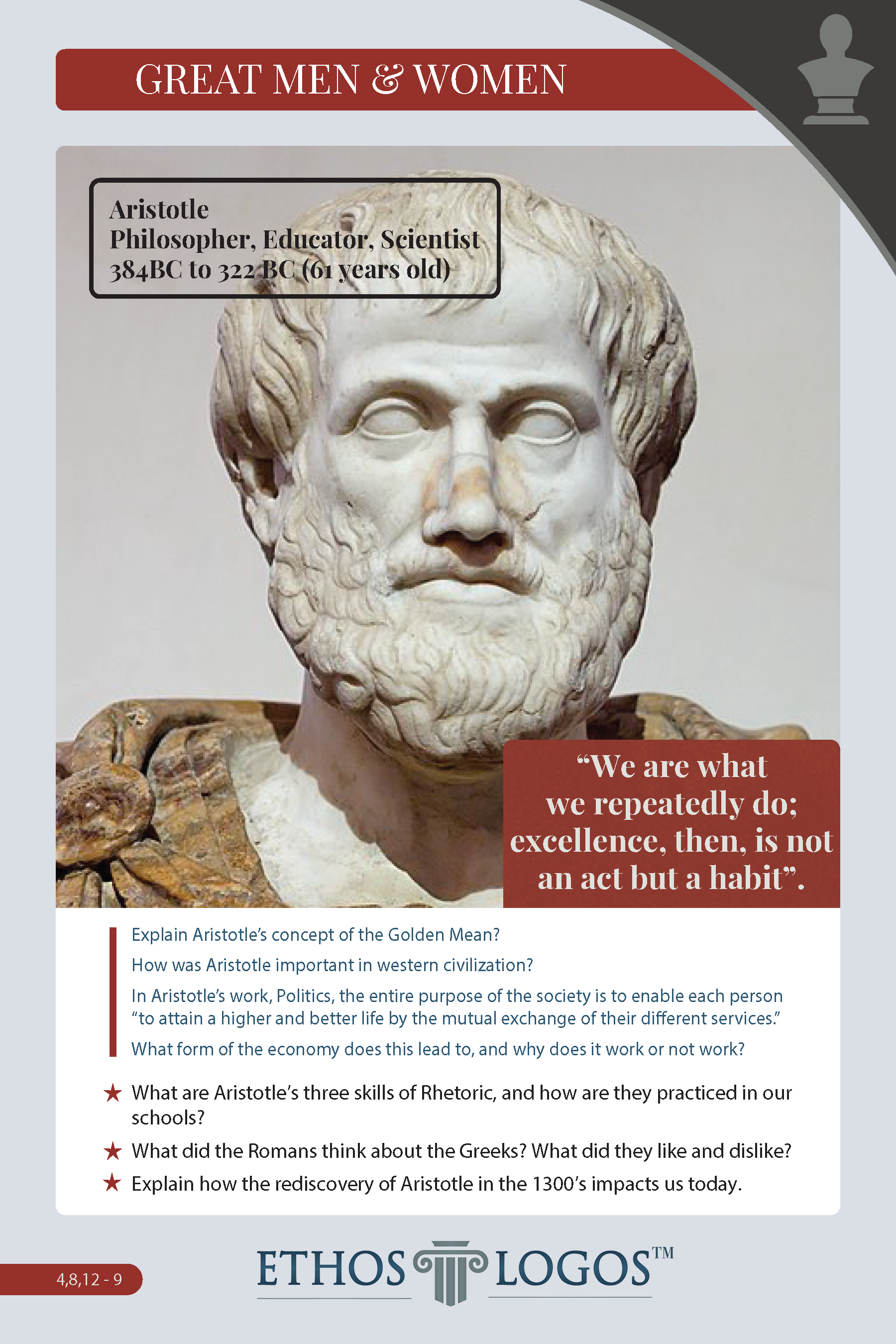
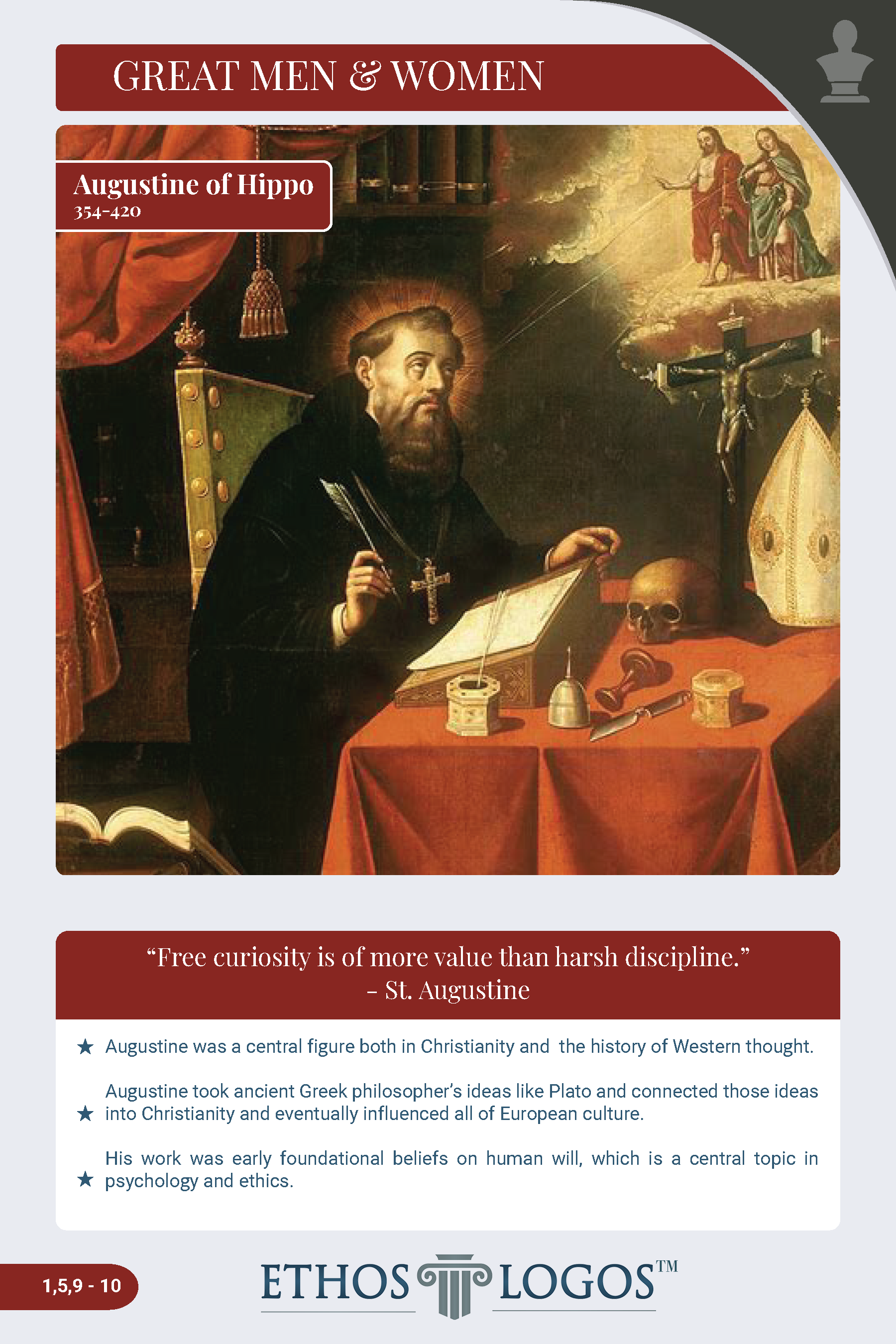
Classical Christian education can be adapted to a secular setting by presenting its historical context, key texts, customs, and its impact on the world. This approach focuses on teaching history while leaving religious doctrine to be taught by families while still maintaining its core values and goals. For instance, moral and ethical principles can be taught as part of a general understanding of human values instead of being exclusively linked to religious teachings. The study of religion can also be viewed from a historical and cultural perspective rather than serving as a form of doctrine.
Exploring World Religions
In practice, our curriculum program includes lesson prompts and an exploration of all the major world religions. We introduced their origin stories during times in history when the belief system emerged or dominated society. We cover Pan Theism in ancient times, the Old Testament during Abrahamic times, the origins of Jesus at the end of the Roman Empire, and include the impact of Christianity in the Middle Ages and beyond. We introduce Buddha and his teachings in the third unit of 1st, 5th, and 9th grades and Mohammad in the second unit of 2nd, 6th, and 10th grades. We introduce Confucianism (Daoism, Taoism, Shinto) in the 3rd unit of 1st, 2nd, 5th, 6th, and in 9th, and 10th grades. We have a series of 10 lesson cards available with bullet points explaining the size of each religion in our current world, its origins, leaders, celebrations, and an explanation of the religion's impact on the world.
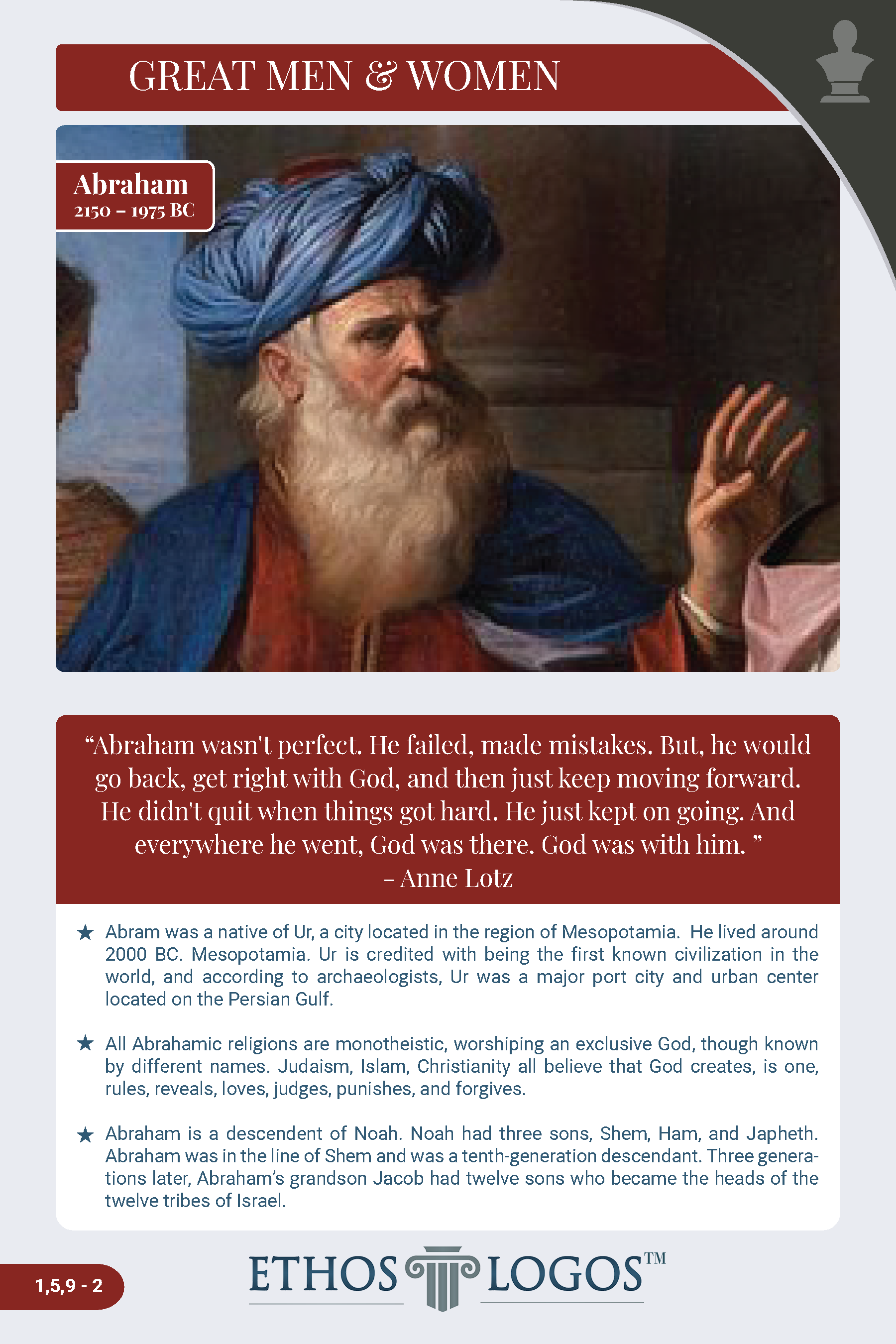
Values and Virtues Integration
The modeling of character formation is as old as Plato, Socrates, and Aristotle. Our program integrates two values and virtues each month into all our subjects. These two sample virtues are rooted in Ben Franklin's 13 Virtues. These virtues were Franklin's personal code of ethics that he developed and used to guide his own behavior. The 13 Virtues were: Temperance, Silence, Order, Resolution (Perseverance/Grit), Frugality, Industry, Sincerity, Justice, Moderation, Cleanliness, Tranquility, Chastity, and Humility. From this foundation, we created a Lesson Card and Lesson Guide resources and points of opportunities to explore each virtue during English, history, science, or arts instruction.
Former Reagan Education Secretary Dr. Bill Bennet's Book of Virtues is recommended and supported in our print and digital lessons. Bill Bennett's "The Book of Virtues" is a collection of classic stories and poems that aim to illustrate important character traits and values, such as honesty, courage, responsibility, and self-discipline. The book is intended to be a resource for parents, teachers, and others who are looking to instill these values in children through the power of age-old stories. Both Ben Franklin's 13 Virtues and Bennett's "The Book of Virtues" share the common goal of promoting virtuous behavior and character development. Both works seek to promote the idea that virtuous behavior is an important aspect of a fulfilling and meaningful life.
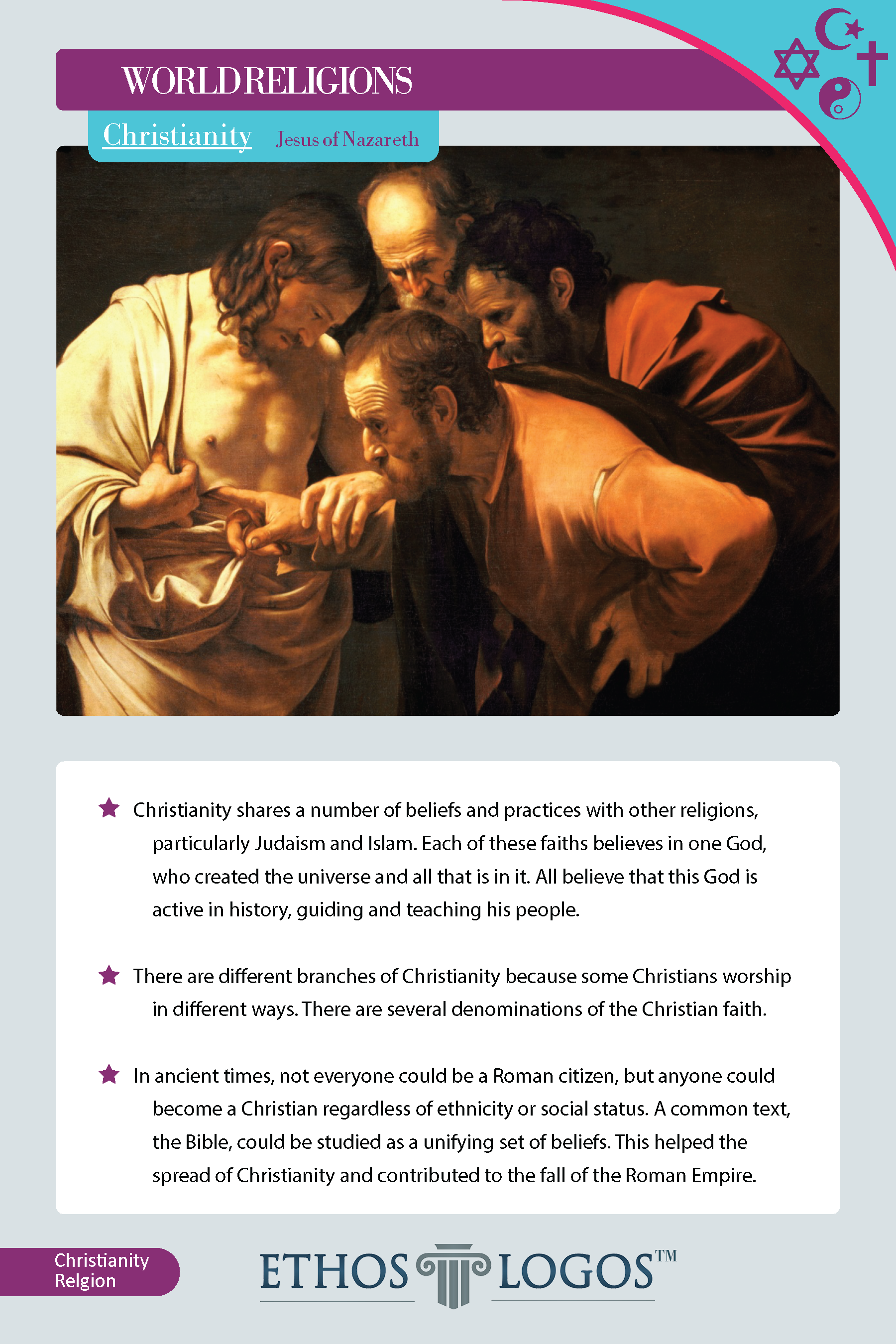
Adapting Ethos Logos To Your Faith
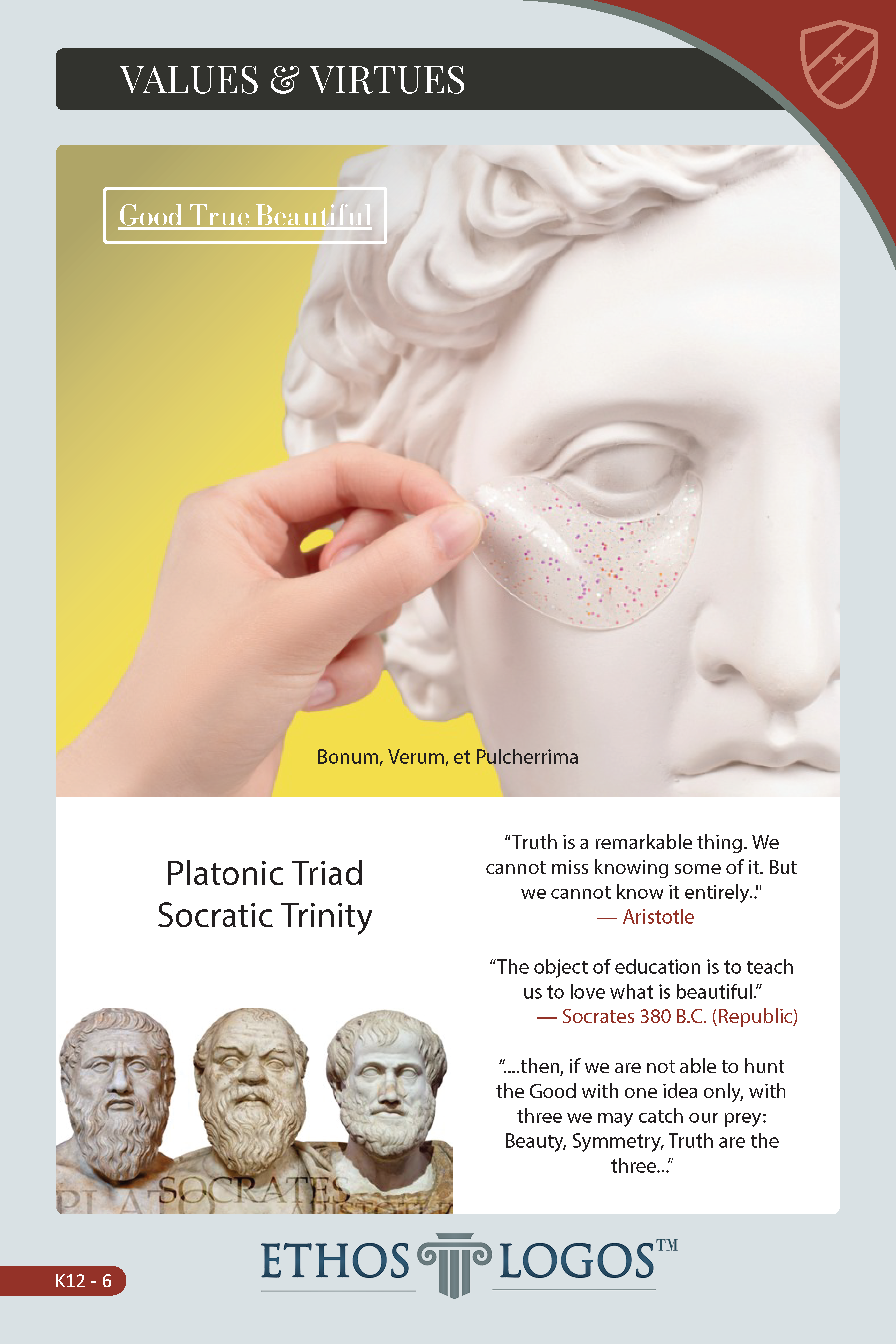
By adapting classical Christian education to a secular setting, schools can provide students with a comprehensive education that prepares them for the challenges of the modern world while still upholding the values and principles of classical education. This can help to promote well-rounded, intellectually, and morally excellent individuals, regardless of their religious beliefs.
There are several controversial debates between secular and Christian education, including:
- The role of religion in education: Christian education emphasizes the integration of religious teachings and beliefs into the curriculum, while secular education aims to provide a neutral and inclusive education that is not based on any specific religious doctrine.
- The teaching of values and morals: Christian education seeks to instill a set of moral and ethical values based on religious teachings, while secular education may promote a more general understanding of human values that have remained constant throughout time. As we explore the history, arts, and great classical literature, universal themes are introduced and explored. Overlaying a family’s religious beliefs is easily done with our system. Jewish, Christian, Catholic, LDS, and Islamic teachings of values using your faith can be done between each individual and their family.
- The interpretation of history and science: Christian education often presents history and science through a religious lens, while secular education seeks to present these subjects in a neutral, evidence-based manner. (See below as to how Ethos Logos addresses history and science).
- The approach to education: Christian education may prioritize the memorization of religious texts and the development of personal faith, while secular education may emphasize critical thinking, reasoning, and the acquisition of knowledge and skills.
- The definition of success: Christian education may define success as spiritual growth and personal holiness, while secular education may define success in terms of academic achievement and career success. Classical education focuses on preparing students for a rich and fulfilled life. We believe academics are important but so is modeling character.
These debates reflect differing perspectives on the purpose and goals of education and highlight the tension between the desire to provide a comprehensive education and the need to respect individual beliefs and values.
Addressing Controversial Issues
Some school subjects that are controversial for Christians include:
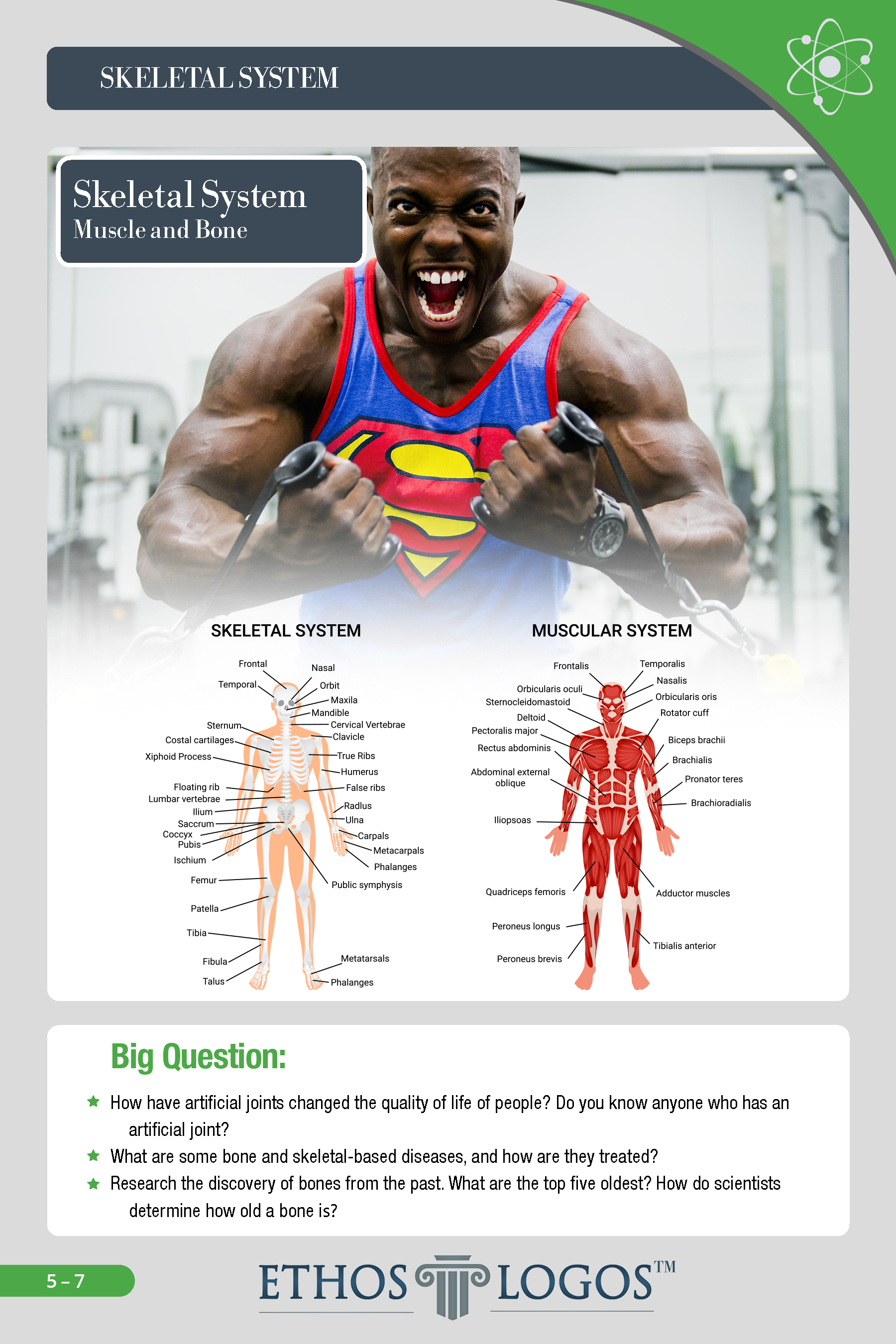
- Evolution and creationism: Christians who adhere to a literal interpretation of the Bible may reject the scientific theory of evolution, while others may reconcile their beliefs with science by accepting evolution as God's method of creation. In our curriculum, we discuss the topics of the creation of the universe and the Theory of The Big Bang in 2nd grade (units 7 &8) and 6th grade (unit 1).
- Sex Ed: Christians may have differing views on the appropriate age and content for teaching about human sexuality and may prefer a conservative or abstinence-based approach to sex education rather than a comprehensive approach that includes information about contraception and safe sex practices. In our biology series, we introduce the Human Body unit in 1st grade (units 6, 7 & 8) and do not introduce sexual reproduction topics. In 5th grade, we introduce cell structure and DNA and have three units at the end of the year on the Human Body. In 9th grade (units 4 and 5), we cover genetics and evolution. At this stage, the Theory of Evolution, minor and major natural selection, well as the Theory of Intelligent Design can be introduced. These units do not address sexual reproduction, but a school or family could easily introduce their beliefs at these times.
- Comparative Religion Instruction. Christians may feel uncomfortable with the study of other religious beliefs and practices, particularly if they are perceived as conflicting with their own beliefs. Since our curriculum is a series of Lesson Cards and prompts, each family can decide how or if to introduce the historical impact of other religions to their student.
- Ethics Instruction. Christians may disagree with the values and ethics taught in secular schools or may feel that the moral education provided is insufficient. Through the Ethos Logos Values and Virtues Lesson Cards and Lesson Guides, we use the stories from history to explore values and ethics. Our resources provide our teachers and parents with hundreds and hundreds of ways to integrate character lessons into each subject each day.
- Historical World View. Christians may have different interpretations of historical events and may feel that their perspective is not accurately reflected in the history curriculum. Our Lesson Guides are built using a series of questions aligned to historical events. Our teachers and families can choose the questions that best match their belief systems. Gone are the days when a textbook provides historical events and then quizzes students on what they were given. Our model is based on Socrates' obsession with asking questions. Our One Million and One Question platform poses the essential questions and allows your student to explore and learn while finding the answers.
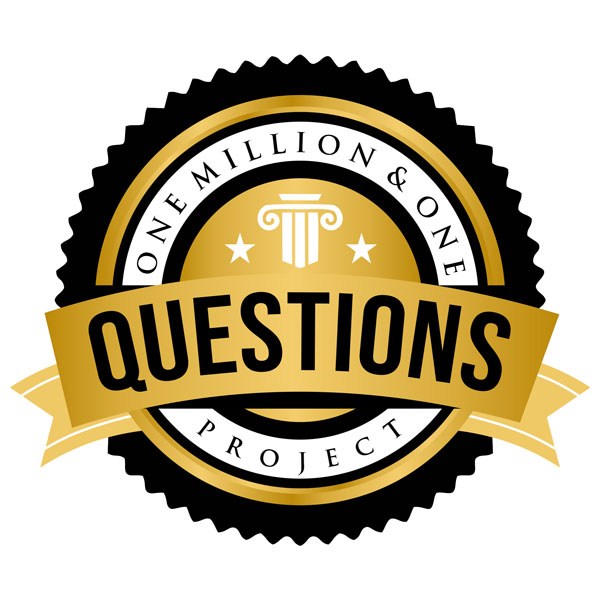
These controversies reflect the diversity of beliefs within the faith community and the tension between the desire to provide a comprehensive education and the need to respect individual beliefs and values.
Testimonials
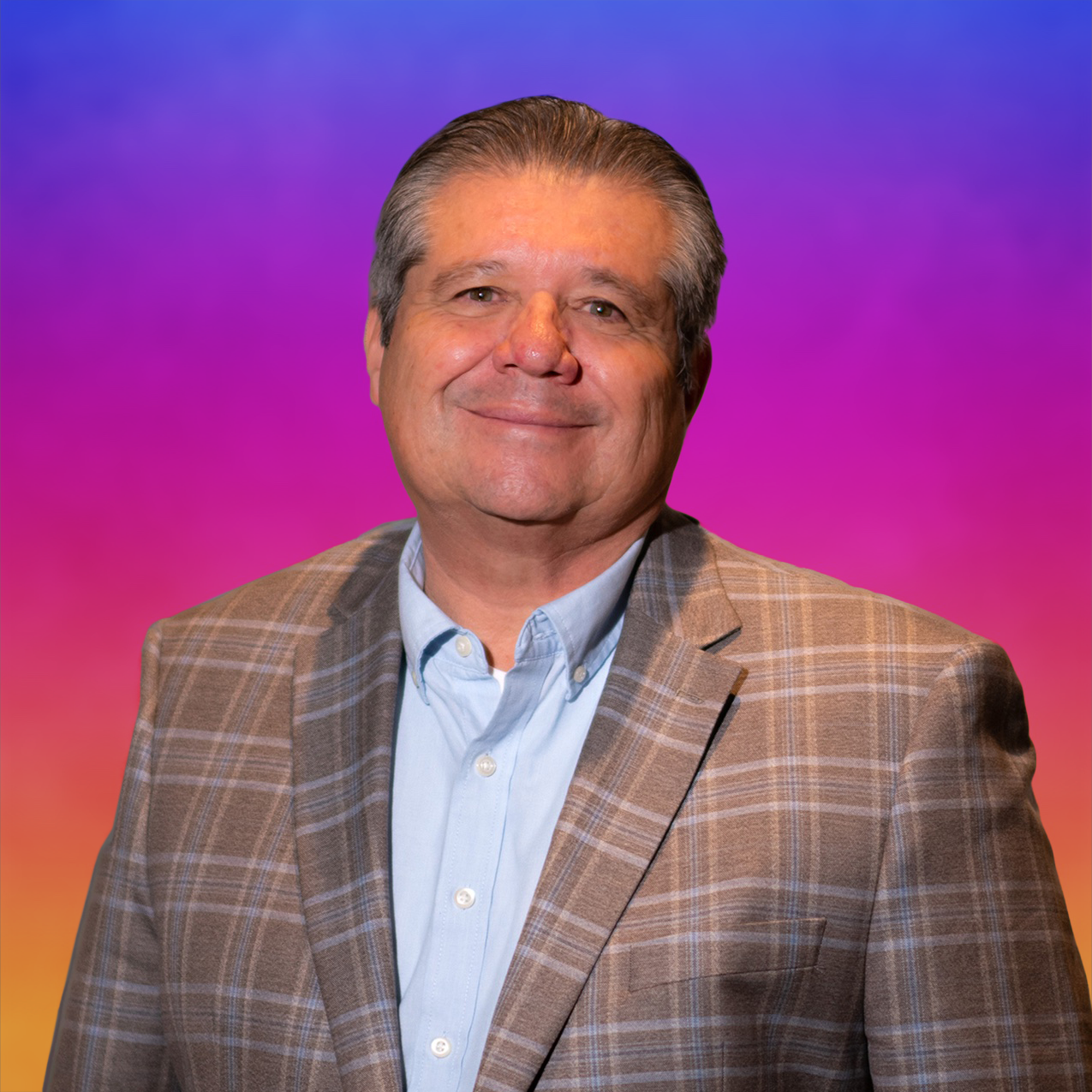
“I believe that for parents who have a deep desire to give their children a quality classical home school education with a strong Christian emphasis, the Ethos Logos classical curriculum is the right choice for your family.”
Mike Alameda
Executive Director of Corazón Ministries

"In this new curriculum, the Ethos Logos Classical Education Series, the Ethos Logos team has created an attractive, user-friendly curriculum for steeping young minds in the wisdom of the past. As a history-based approach to elementary liberal arts, Ethos Logos is equally adaptable to homeschool and institutional use. As a teacher/administrator with over forty years experience in both public and private schools, my response upon reviewing their’ work was, 'Why wasn’t this around when I started teaching?' The good news for those teaching the current generation is that IS available now, and ready for a variety of implementations.
Tom Askew, Ed.D.
Executive Director of Corazón Ministries
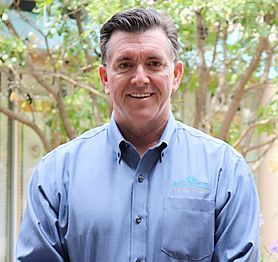
"After years of classroom input, Ethos Logos has built an easy-to-follow Classical Education for K12 schools and families. Their platform seamlessly integrates the philosophies of Charlotte Mason into a program that a seasoned teacher or new to homeschooling family can implement. As a teacher, the tools prompts, lesson ideas, and resources are what we need to lead our students in their pursuit of The Good, True, and Beautiful. As a leader of teachers, Ethos Logos has given our schools a roadmap to guide them on the journey of impacting students' lives. In my role as a Pastor, I recommend Ethos Logos to families looking for a rigorous, values-based homeschool system that is flexible and matches their Christian worldview."
David Towne
1999 Teacher of The Year
Former Principal
Pastor









